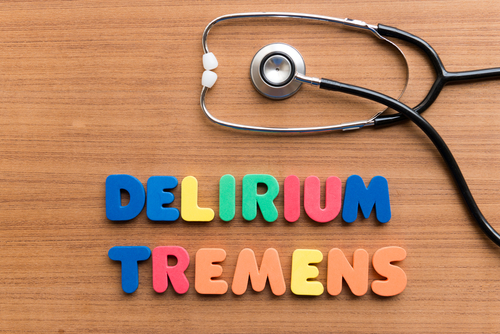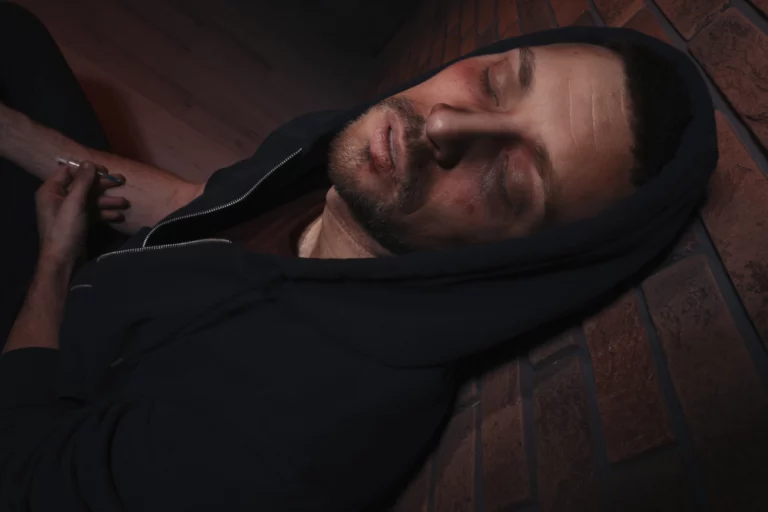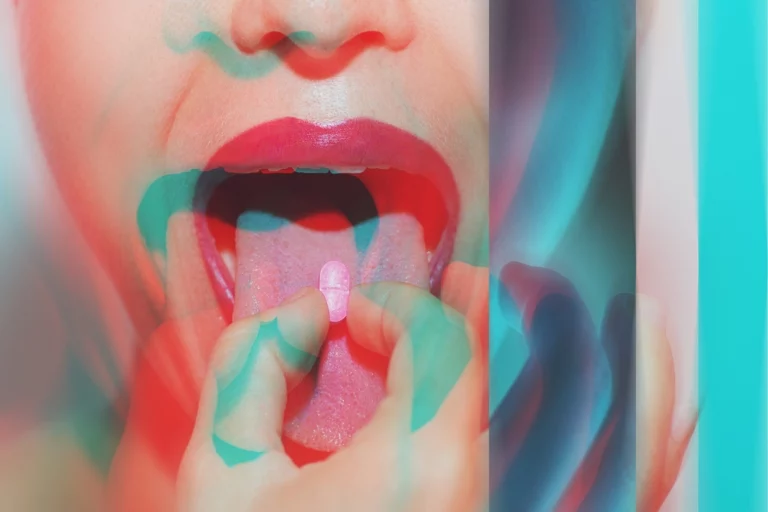Can alcohol withdrawal cause death? Yes, Alcohol withdrawal can be fatal. Individuals attempting to quit drinking after heavy alcohol abuse (also known as quitting “cold turkey”) can induce dangerous withdrawal symptoms. Most people are aware that alcohol addiction can be a fatal disease. Each year, almost 180,000 people die from excessive alcohol use in the United States. That’s about 490 deaths per day. Excessive drinking is the leading cause of preventable death in the United States. How about alcohol withdrawal? Can it cause death?
This information shouldn’t discourage you from seeking sobriety but highlights the importance of detoxing from alcohol in a safe and medically controlled setting. Here’s what everyone needs to know about how to safely stop drinking alcohol and avoid life-threatening symptoms.
Connect With Us Now
Reach out to us now for immediate support, or let us know the best time to contact you through our confidential callback service. Your journey to healing is just a conversation away.
What Is Alcohol Withdrawal?
Alcohol withdrawal is the body’s reaction to ceasing or reducing alcohol use after periods of heavy or prolonged consumption.
Due to alcohol’s suppressive effect on the central nervous system, chronic alcohol consumption causes the body to become physically dependent on alcohol. It’s also known that alcohol’s impact on the brain’s gamma-aminobutyric acid (GABA) receptor and N-methyl-d-aspartate (NMDA) glutamate receptor can overtake the brain’s reward system.
Read more: 3 Stages of Alcoholism: Denial, Dependence, & Decline
What Happens During Alcohol Detox/Withdrawal?
Over time, the brain will begin to rely on alcohol to trigger specific chemical reactions instead of initiating them on its own. Once the body is cut off from alcohol, the central nervous system becomes more active and alert than it was during alcohol abuse, leading to uncomfortable psychological and physical symptoms.
The most common psychological symptoms include:
- Anxiety
- Nervousness
- Depression and mood issues
- Irritability
- Feeling jumpy or shaky
- Intense nightmares
- Inability to think clearly
Physical symptoms may include:
- Sweating
- Clammy skin
- Dilated pupils
- Headaches
- Insomnia
- Fatigue
- Sleep disturbances
- Loss of appetite
- Nausea and vomiting
- Pale complexion
- Rapid heart rate

Alcohol Withdrawal Can Escalate To Fatal Symptoms
Alcohol withdrawal symptoms can escalate to delirium tremens (DT) without warning. Delirium tremens, also known as alcohol withdrawal delirium, isn’t common, with only 3% to 5% of people displaying symptoms during withdrawal. However, this condition can be fatal if left untreated. Contact medical emergency services if you notice:
- Agitation (50%−70% of people with delirium can experience restlessness to aggressive violent behavior)
- Sudden and severe disorientation (delirium)
- Low and high-grade fever
- Visual and sensory hallucinations
- Seizures
- Rapid or abnormal heart rate (arrhythmias)
- High body temperature (hyperthermia)
- Intense sweating
- High blood pressure (hypertension)
- Stupor
- Aspiration pneumonitis (lung infection)
- Tremors in the hands
- Loss of consciousness
- Respiratory failure
- Death
How Fatal Is Severe Alcohol Withdrawal?
Delirium tremens have an anticipated mortality rate of up to 37% without appropriate treatment. The mortality rate drops to below 5% when early treatment is provided. This highlights the importance of early treatment at the first signs of DT. Delirium tremens symptoms can show up as early as 48 hours after the last drink and can last up to five days.
Anyone experiencing alcohol withdrawal symptoms is at risk for developing DT. Specific risk factors can elevate a person’s chances of being among the 3% to 5% of people who develop this severe form of alcohol withdrawal. These factors include:
- History of delirium tremens during previous alcohol withdrawals
- Prior history of seizures
- Over the age of 30
- A heavy, long-term drinker
- The presence of concurrent illness with associated comorbidities
- History of repeated detox-relapse cycles
Other Common Causes Of Death From Alcohol Abuse
Every year, excessive drinking shortens the lives of those died by an average of 23 years and usually involved adult males over 35. Two thirds of deaths caused by alcohol abuse, involve various types of cancer, heart disease, liver disease, and complications from alcohol addiction.. One third of deaths caused by alcohol abuse occur from drinking too much on one occasion, including vehicle crashes, poisoning from alcohol and an additional substance (most notably cocaine), and suicides.
Take Our Addiction Quiz for Recovery Insights
How Long Does Alcohol Withdrawal Last?
There is no set timeline for how long alcohol withdrawal symptoms will last, making an at-home, unsupervised alcohol detox dangerous.
- Symptoms begin within eight hours after a person takes their last drink.
- Symptoms typically peak within 24 to 72 hours. However, there are outliers.
- Some people may not experience their first symptoms until they are several days into withdrawal.
- Alcohol withdrawal symptoms have the potential to last for weeks to months.
How To Make It Through Alcohol Withdrawal?
There is no medical test that can determine the severity of withdrawal symptoms before quitting alcohol. The best way to achieve this is to detox from alcohol in a qualified rehabilitation center with trained, competent staff members capable of providing medical care and interventions. Detox specialists don’t wait until signs of alcohol withdrawal to begin to take action. They instead anticipate them. When managing alcohol withdrawal, care providers have three main treatment goals.
- Control agitation and discomfort
- Reduce medical risks
- Decrease seizure risks
- Decrease morbidity and mortality

Alcohol Withdrawal Medication Can Reduce But Not Prevent Symptoms
While every client’s needs must be assessed on a case-by-case basis, the most common and validated alcohol withdrawal treatment involves medication. Benzodiazepines such as lorazepam, diazepam, and chlordiazepoxide can be administered intravenously and are considered the most effective options due to their ability to calm the same receptors targeted by alcohol without inducing euphoria. Symptom-triggered regimens (symptoms are addressed as needed) and fixed-schedule regimens (medication is administered regularly) can be used to manage alcohol withdrawal symptoms.
In cases where clients who develop severe DT become unresponsive to commonly used benzodiazepines, alternative medications may either be used separately or in conjunction with benzodiazepines.
Read more: Alcohol Withdrawal Insomnia: Causes & Solutions
Other Ways to Manage Alcohol Withdrawal Safely
The discomfort, cravings, and agitation during alcohol withdrawal can cause people attempting to quit cold turkey to neglect their basic needs, including hydration, eating full meals, physical movement, and hygiene. A supportive care environment, such as an inpatient detox center, will ensure that individuals receive proper hydration, maintain electrolyte balance, and adequate amounts of folate, thiamine, and other essential vitamins and minerals. Ultimately, there’s no reason for detox to feel like punishment.
Alcohol Withdrawal Is Just the First Step
Detox is only the first step in a journey to long-term recovery. Individuals who complete a medically supervised detox program should enter an inpatient, partial hospitalization program (PHP), or intensive outpatient program (IOP). This allows clients to engage in behavioral therapy sessions and group counseling that help to address underlying causes of alcohol dependency.
Cognitive behavioral therapy (CBT), motivational enhancement therapy (MET), and acceptance and commitment therapy (ACT) can also help people identify ways to change patterns of thinking and behaviors to avoid relapses. Individuals in alcohol addiction treatment should also engage in mindfulness and holistic therapies. It’s important to attend an aftercare program that allows a person to continue to access treatment and resources after completing a full-time treatment program.
Are You Covered For Treatment?
Asheville Detox Center partners with numerous private insurance providers. Our team is committed to assisting you in quickly and effortlessly verifying your insurance coverage for treatment.
What Are Some Ways To Stop Using Alcohol?
While the desire to live a life of sobriety may be strong, simply stopping alcohol following a prolonged period of heavy use can be extremely dangerous. There is no way to “hack” the body into avoiding alcohol withdrawal following excessive drinking that has caused physical dependence. This step should only be taken after consulting with a care provider. Supervised alcohol withdrawal is the safest method for getting sober. Once a person’s risks have been assessed, a custom plan for medically supervised detoxification can be designed in an inpatient or outpatient setting.
Contact Asheville Detox Center
If you or a loved one want to overcome alcohol withdrawal symptoms safely, contact Asheville Detox Center in Asheville, North Carolina. Our medical detox center is one of the only private and dedicated detox facilities in Western North Carolina, with on-site chefs, clinicians, nurses, and supportive therapists. Alcohol withdrawal doesn’t have to be dangerous. Call, email, or fill out a form today.







